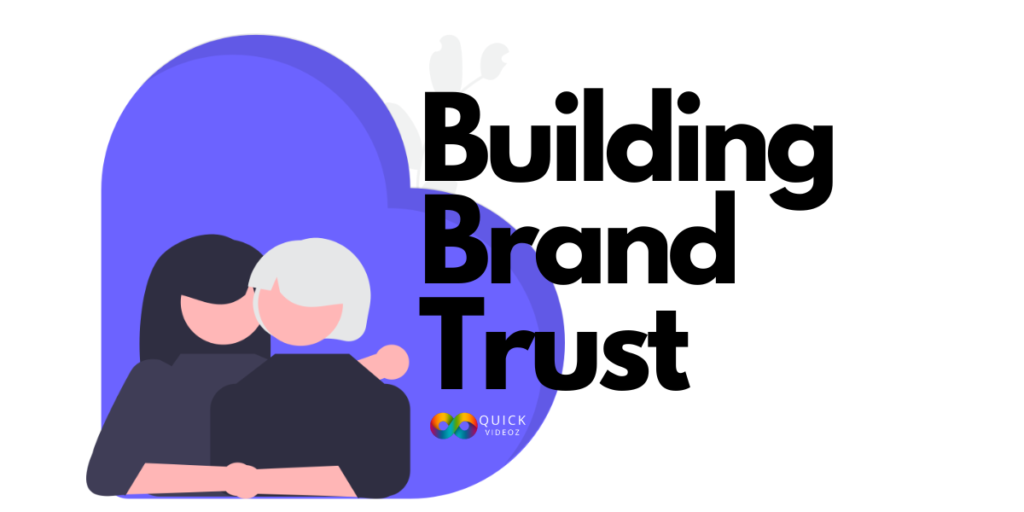
11 Key Factors While Editing Content Targeting Seniors
11 Key Factors While Editing Content Targeting Seniors Editing content requires careful attention to detail and a systematic approach to ensure clarity, coherence, and accuracy.
In our earlier post we explored the traits of successful B2B marketing. Now let’s shift our focus to the execution phase. Here are four habits of building band trust that can help consistently embody the six traits of successful B2B marketing:

Building brand trust requires your audience to have faith in both your capabilities and your character. While having a quality product or solution is crucial, it’s only part of the equation. B2B buyers also seek trust in the people behind the solutions, and they often gauge this through social profiles and marketing assets. Additionally, keeping promises involves showing up when and where your audience expects you—maintaining a content cadence, active engagement in forums, and interacting with followers on social media channels.
This habit is easier said than done, but its importance cannot be overstated. Being genuine and vulnerable often requires stepping out of our comfort zones, and a little encouragement can go a long way. Marketers often aim to convince buyers that their brand is “perfect” for them. However, B2B buyers tend to resonate with brands they can identify with, and perfection isn’t relatable. Embracing your imperfections, especially when acknowledging past flaws, helps customers better understand your perspective, what you’ve learned, why you’re pursuing your mission, and where you’re headed.
While the content you deliver is undoubtedly important, the environment in which you deliver it also impacts the validity of your message. A study by DemandGen Report reveals that 51% of B2B buyers prioritize the trustworthiness of content sources, again building brand trust. Furthermore, 68% of B2B buyers notice ads from the solution provider they ultimately choose during their research process. By showcasing value in trusted environments, B2B marketers can leverage the “halo effect.” If your audience prefers specific environments and accepts them as trustworthy, they will also be more receptive to the people and brands communicating within those trusted spaces. To achieve effective reach, it’s essential to prioritize showing up in trusted environments, rather than merely focusing on reach.
Similar to the halo effect, collaborating with trusted voices and influencers can greatly impact your B2B brand’s trustworthiness. Every industry has its trusted voices and influencers who exemplify the habits of authentic B2B marketing and embody the traits consistently. Engaging with B2B influencers requires creativity and collaboration, as simply seeking quick endorsements can pose risks for the influencer’s trustworthiness. Marketers should explore opportunities where brands and influencers can collaborate to create shared value for the audience. By mitigating risks for the influencer and reinforcing their image as community-minded and value-oriented individuals, marketers can build trust through association. Endorsements, while nice, are not always necessary or the primary goal. Genuine collaboration with key influencers can establish significant trust through meaningful engagement.
Defining your brand is a challenge on its own, and the fractured online environment adds to the complexity. However, this challenge is also what sets authentic marketing apart from the clutter. If authenticity were easily achieved, its rewards wouldn’t be as significant.
Be authentic by telling stories, which can better engage your customers and help develop a relationship, and, therefore, build trust.
Getting your storytelling right means developing a brand narrative. Nike tells its brand story not by promoting its products or even its brand. It tells the story of Rory McIlroy as a child looking up to his hero Tiger Woods and then finally meeting him. Only toward the end does the viewer see the trademark swoosh and the slogan “Just Do It.”
Every day, we make decisions that either build a little trust or cause us to lose a lot of it at once. That’s the nature of trust. But building authenticity doesn’t have to be daunting. With the right approach, authenticity can be a powerful advantage in an impersonal, disconnected online world. We hope these habits and traits of authentic B2B marketing have increased your confidence in your journey of building brand trust.
The 2018 Edelman Trust Barometer revealed that only 48% of the U.S. population trusts business as an institution
(a 10-point drop from 2017).
Yet, brand trust is one of the biggest factors in consumers’ purchasing decisions.
According to PwC’s Consumer Insights Survey (2018), 14% of respondents put trust as their No. 1 reason for choosing a retailer. “Trust in brand” was the second most frequently cited reason for purchase decision-making.

11 Key Factors While Editing Content Targeting Seniors Editing content requires careful attention to detail and a systematic approach to ensure clarity, coherence, and accuracy.

How To Write A Great Explainer Video Script For Seniors Learn how to craft a great explainer video script to sell senior focused products &

How To Make Videos For Social Media To Promote Your Business Alright, folks, let’s dive into the world of social media wizardry! If you’re eager